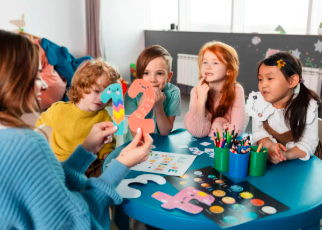Deciding when to enroll your child in preschool is an important milestone for both parents and children. While every child develops at their own pace, there are several common signs that can help indicate preschool readiness. Recognizing these signs early can ensure a smoother transition and a positive start to their educational journey.
Shows Independence One of the first signs of readiness is a growing sense of independence. If your child can manage simple tasks like washing their hands, putting on their shoes, or tidying up toys with little help, they may be ready for the structured environment of preschool. These small tasks build confidence and prepare them for classroom routines.
Comfortable Being Away from Parents Preschool often requires children to spend a few hours apart from their parents. If your child can comfortably stay with relatives, babysitters, or in group settings without becoming overly distressed, it’s a strong indicator they can handle the emotional adjustment of preschool.
Can Follow Simple Directions Listening and following instructions are key components of a successful preschool experience. If your child can understand and act on basic requests like “please sit down,” or “put the book on the shelf,” they are likely ready to participate in a group learning setting.
Developing Social Skills Positive interactions with other children are crucial in preschool. If your child shows an interest in playing with peers, takes turns, shares toys, or expresses feelings with words, these are excellent signs of social readiness. Preschool helps further develop these skills through group activities and cooperative play.
Demonstrates Curiosity and a Desire to Learn Children who ask questions, show interest in books, or enjoy exploring new activities are often ready for the stimulating environment of preschool. A natural curiosity supports their ability to engage in learning activities and discover new concepts.
Basic Communication Skills While preschool doesn’t require perfect speech, your child should be able to express needs, wants, and ideas in ways others can understand. Clear communication helps children interact with teachers and peers more effectively.
Physical Stamina and Motor Skills Preschool involves a balance of active play, sitting for circle time, and fine motor tasks like drawing or using scissors. If your child can participate in these activities with energy and coordination, they are physically prepared for preschool routines.
Interest in Group Activities Showing enjoyment in singing, storytelling, or playing games with others is another positive sign. If your child thrives in group settings and follows along with group instructions, preschool can be a rewarding experience.
Every child is unique, and readiness doesn’t come at the same age for everyone. Paying attention to these developmental signs can guide your decision and help ensure your child starts preschool at the right time for them. A gentle, supportive approach can make the transition enjoyable and successful for the whole family.


